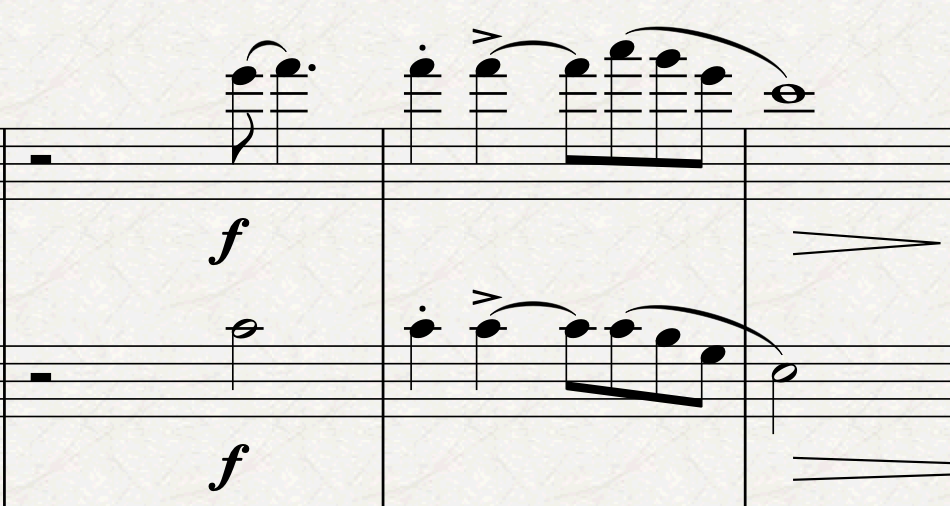A Dream Nearly Woken From
It’s been some time since I’ve updated this blog, simply because there’s not much to update. Despite the chaos of COVID ravaging the United States (especially Arizona, hooray we’re number 1!) and being in the midst of a revolution as the Black Lives Matter movement makes progress towards dismantling the oppressive systems inherently built into this country (here is a fantastic resource for ways YOU can help!), day to day life is quite slow.
I have been struggling lately with depression and anxiety, which is not helped by the frustration of knowing we could be on our way back to a semblance of normalcy by now if it weren’t for the combination of selfishness, misinformation, and poor leadership that led Arizona to reopen prematurely. As a musician, the uncertainty of not knowing when performances will take place again has a very serious effect on my ability to motivate myself to practice or compose. The feeling of “what’s the point” that set in when this chaos started has returned.
Nevertheless, I have nearly completed my wind quintet, Dream States. I finished movements 1, 3, and 4 earlier this year, but movement 2 has been a challenge to finish. It is the fastest movement, which means I need to write more music to make it as long as the other 3. I’m shooting for 3 minutes for this one, which would make the piece as a whole 16 minutes. That is by far the longest singular piece I have written, so I’m trying not to be too angry with myself for how long it’s taken me to complete it. I currently have about 2 minutes and 40 seconds of the movement, and it doesn’t feel I’ve made my point yet, so the 3 minute goal should be fairly easy to reach. Here’s a snippet of one of my personal favorite sections which contains fragments of multiple themes from the movement:
Each movement is given a long and descriptive title: I. The sound of rain on asphalt gives way to a deep slumber, II. A fiddler in the desert plays for an audience of dancing sparrows, III. Those trees whose voices can be heard from beneath a moonlit pool, and IV. The rain becomes a cloud of fireflies illuminating a grove. These titles are not based on anything in particular, just images from my mind. The concept of dream fascinates me greatly as a subject of art (likely why David Lynch is my favorite filmmaker). It allows for so much artistic freedom, because dreams don’t follow any logic other than their own. This piece is very fragmentary, with certain gestures and melodies appearing in odd places and only for a moment, as when you see a face from real life in a dream. I’m trying to avoid complete melodies, because often thoughts in dreams trail off and never complete themselves.
I think this second movement is my favorite I’ve written. It’s directly based on bluegrass, a genre that means very much to me. Some of my fondest memories as a child are listening to my very close friend Rebekah Rolland (of Run Boy Run) singing traditional folk tunes to me, and she remains a brilliant musician, mentor, and friend. In writing the second movement of Dream States, my intention was to create something that sounded like a fiddle tune that had been put through a blender. I couldn’t help myself but to include a brief quote of one of my favorite fiddle tunes Rebekah has written, a beautifully melancholic dance called Lion and the Fawn.
A very brief quote from Lion and the Fawn in the flute and oboe
After experimenting with tonality and texture quite a bit in the first and third movements of the piece, it’s felt very cathartic to write something as instinctual and joyous as this movement. I have been troubled of late by the elitism of the classical world. There is value in the more abstract and intellectual works being written today, but the sad truth is that really, really out there music doesn’t draw a crowd. I love that kind of stuff, but I’m surrounded by it in my every day life. I am hesitant to bring friends and family from outside the music world to new music concerts because more often than not, they don’t find it rewarding. I’m about to use the dreaded “A” word, but I hold the opinion that accessibility is not the death of art. There’s nothing wrong with writing music that mainstream audiences find accessible. It took me a long time to get over my own elitist opinions on music and reach this conclusion, but I do believe in it with all my heart.
This post got away from me a bit, I must admit. This has all been on my mind a lot lately, and I needed an outlet to vent about it.
To end on a positive note, Solo de Concours, Five Miniatures, and Sonata for Soprano Saxophone are now available for purchase from T.U.X. People’s Music Publishing!
Until next time.

